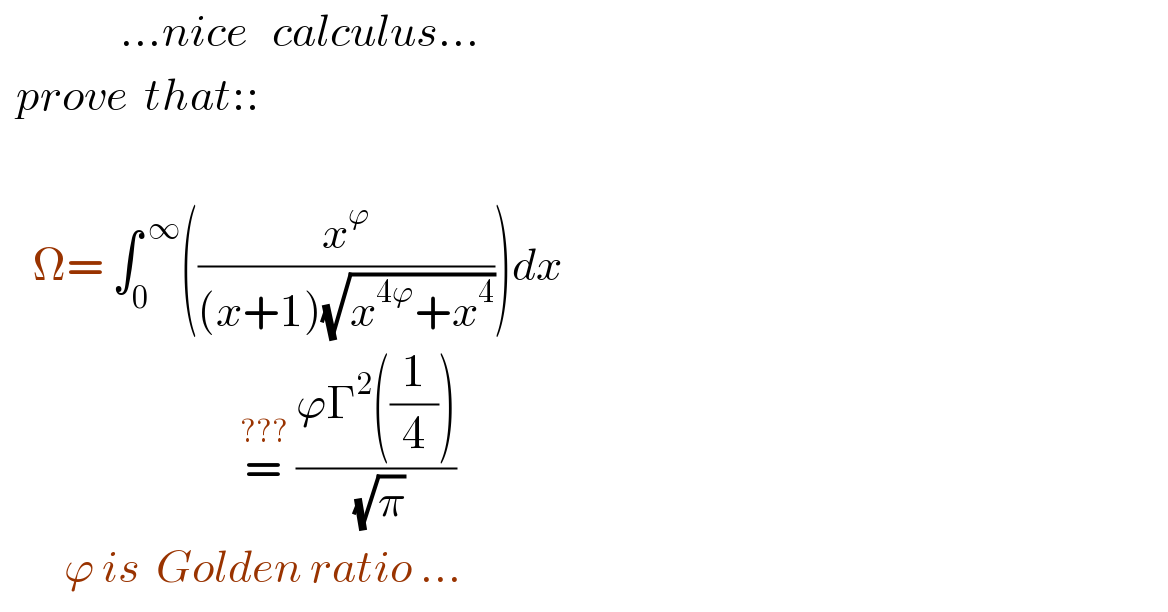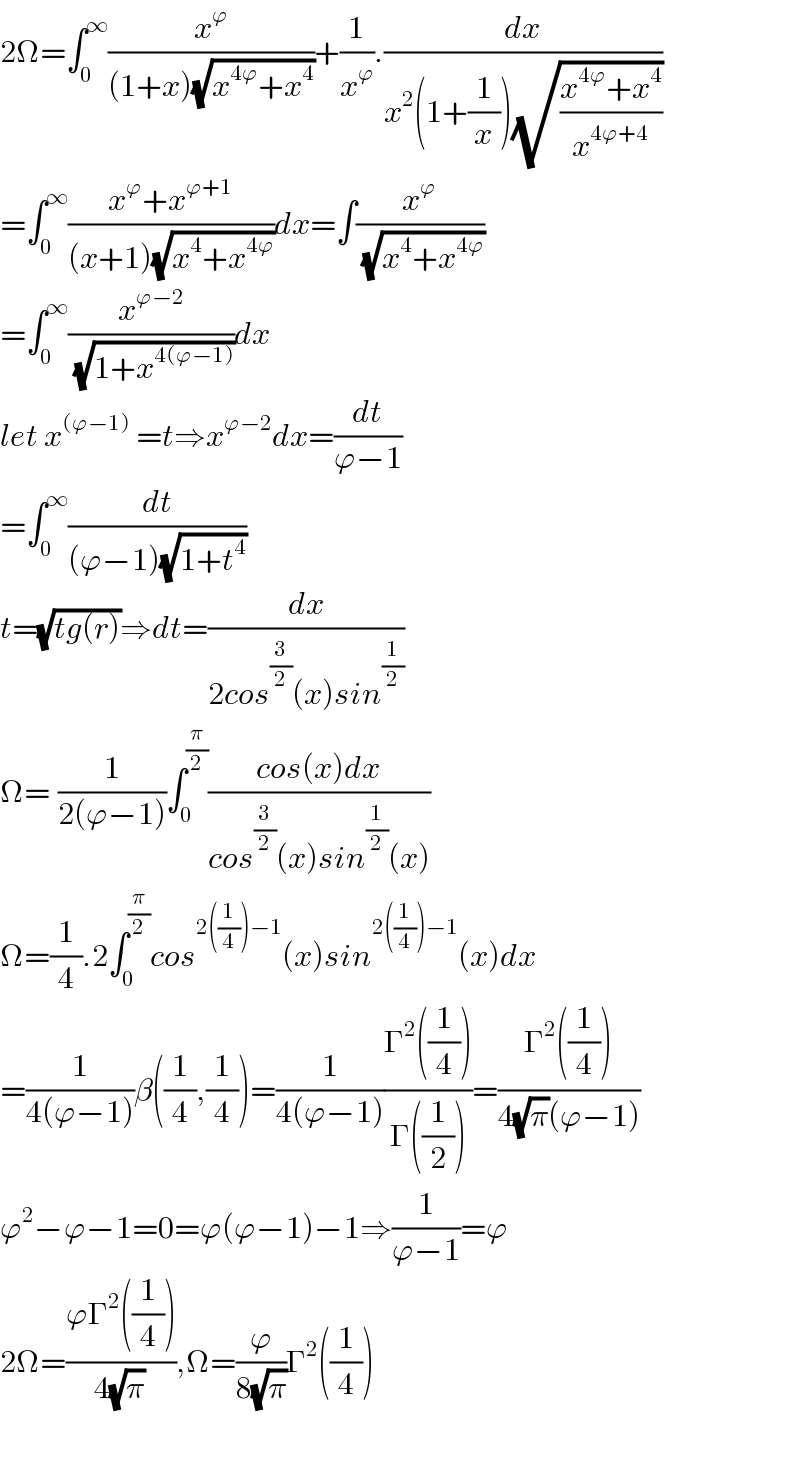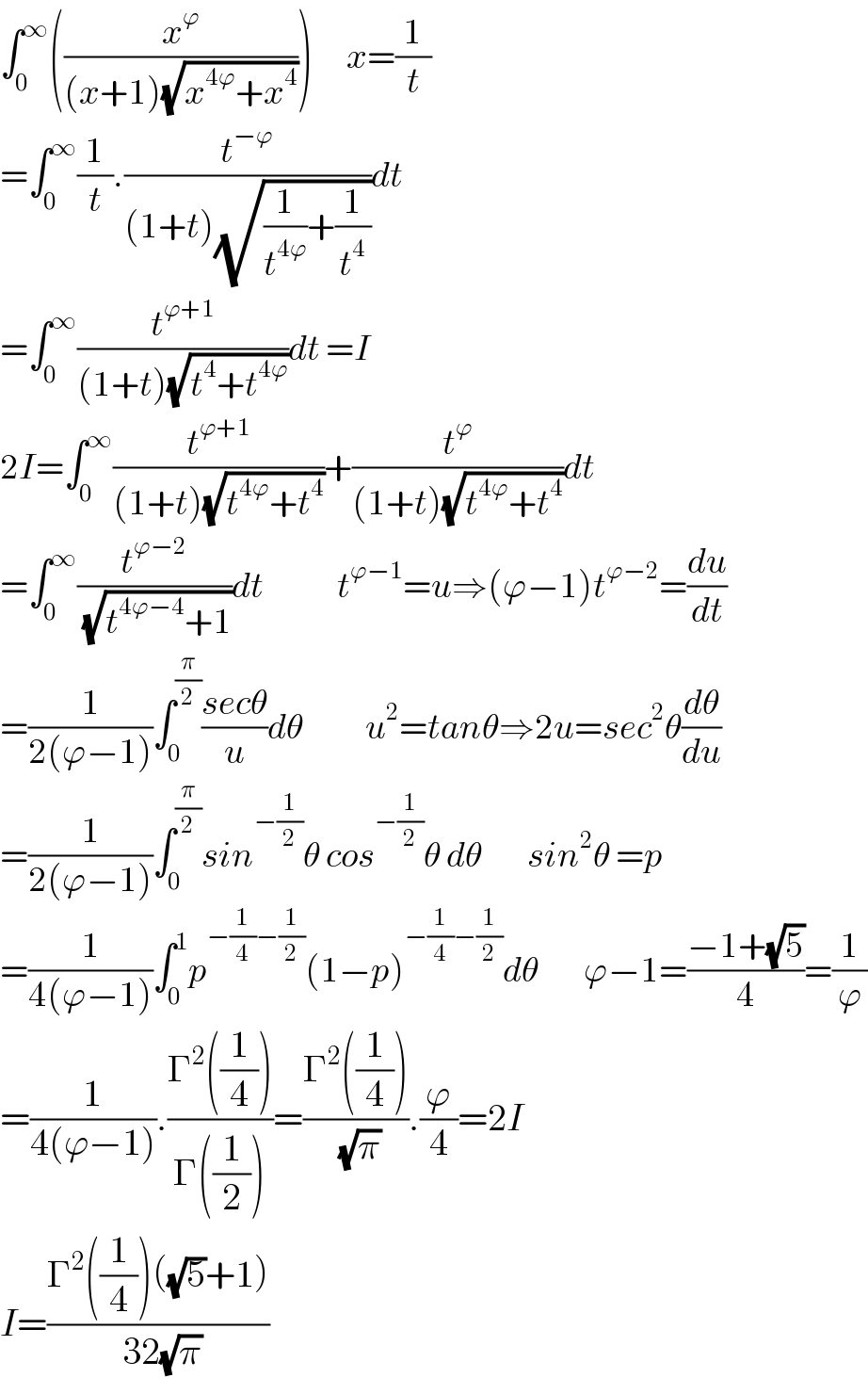
Question and Answers Forum
Question Number 123961 by mnjuly1970 last updated on 29/Nov/20

Answered by mindispower last updated on 29/Nov/20

Commented by mnjuly1970 last updated on 29/Nov/20

Commented by mindispower last updated on 02/Dec/20

Answered by Dwaipayan Shikari last updated on 29/Nov/20

Commented by mnjuly1970 last updated on 29/Nov/20

